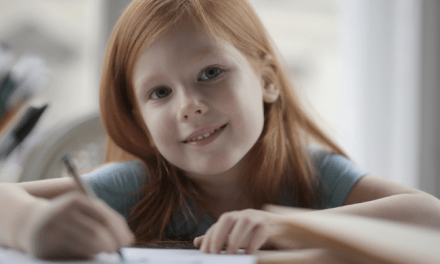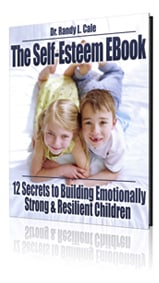We all want children with a strong and confident sense of self. When challenges arise, we want them to feel certain that they can handle them and get through them. Yet, much of what is encouraged undermines this desired result.
Last week, we began to uncover the building blocks to a solid sense of self. The two main points covered were:
- Self-Esteem Secret One: Relax and Stop Working So Hard. Not only do you not need to work so hard at building self-esteem, but the result of all those efforts is counterproductive. The incessant encouragement, coaching, reminding, prodding, pushing, and nagging all serve one toxic master, and that is the destroyer of self-esteem. Bottom line: stop it.
- Self-Esteem Secret Two: You always have a choice! Children build an internal sense of efficacy based upon their experiences, not upon the directions they follow because someone ‘told them’ to do it. An appropriate choice, within the child domain, allows for learning and growth. From the experiences of both success and failure, a child learns that they are ready to handle their life. This is not something you can tell. This is what they must experience, in order to ‘get it.’
For today, we move toward a deeper understanding that your child’s self-esteem is in your hands, in many ways, but the process of influencing this goes deeper than it appears.
Self-Esteem Secret Three: Have Faith in Your Child…Regardless.
I call this the “You Get It” approach. It begins with a deep, inner sense of faith in your child, as well as trust that reality is almost always the best teacher—not you or your words. (If your words were the best teacher, just realize that reading articles like this would never make it to press because most parents have great words to offer. They just don’t work to build esteem. )
The “You Get It Approach” works like this. Let’s imagine for a moment that we could fast forward in time about twenty years. In the back of your child’s mind is a deeply ingrained belief that rings true in any situation: “I’ll get it. I will figure it out. I can handle it.” New job. New school. New friends. New task. It doesn’t matter, as this belief drives their confidence in themselves. No matter what is in front of them, they believe that “I will get it.”
Can you imagine how powerful this would be? It is quite profound and has layers of the potential power that unlock a fearless approach to growth and initiative.
And it all begins with you. For your son or daughter to have this belief, you will be a key player. However, you can’t do what everyone else is doing, as the common approach will backfire on you!
Instead, I invite you to choose faith…regardless. Choose faith in your child and their ability to find their path. Find a way to believe, in your own heart, that your son or daughter WILL get it. Know that they will figure it out. Their actions and choices may or may not be what you would do, and it may not even meet your approval, but maintain faith. Your belief in them must rule your every thought and action.
Thus, you can see that the ‘you get it’ approach doesn’t mean that you are to believe that they will get everything right or believe that they will even get everything they want. That will not happen. Instead, this approach allows you to install an internal belief system in your child that ensures that learning and growth will occur. It also ensures that you do not engage in efforts to ‘build’ esteem out of some story or fear about low self-esteem. As covered, this is toxic in the long run and destroys esteem and confidence.
Many parents argue with this approach, suggesting that I am ignoring a child’s poor choices. That is simply not true, as your parenting system should be in place to handle behavioral choices and consequences. This is about Mom and Dad’s attitude and belief, that drives a continual message of confidence in the child. If a consequence is required, you make sure it happens, even if uncomfortable to the child. This is responsible parenting.
But the calm, certain message from a parent that ‘You will figure this out’ ensures that the emotional door in your child is always open. This allows for learning and an inner calm within the child. It is also clear to the child that even though a consequence is present, my primary teachers (i.e., mom and dad) still have faith in me. This is remarkably powerful and ensures that your child corrects poor choices quickly. And at the same time, their self-esteem strengthens with each choice.















